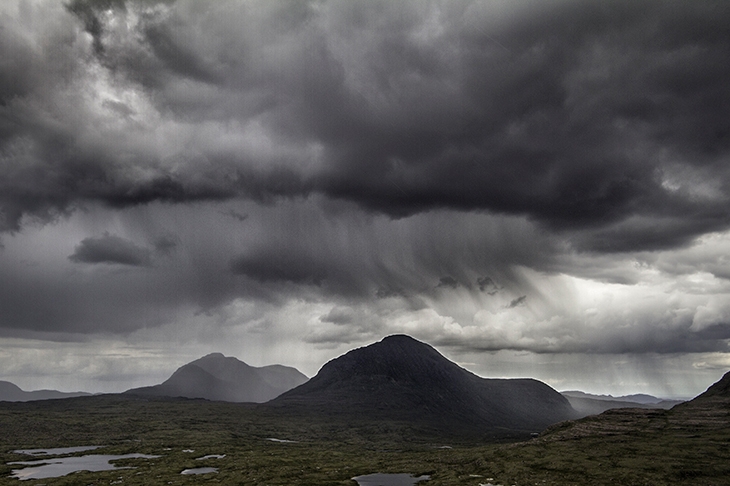There is an old Yorkshire tale about a prosperous town which, legend has it, once stood on the site of Lake Semerwater. A beggar comes looking for alms but is turned away by everyone, save for a poor couple. As he is leaving, he curses the proud townspeople and water rises up and floods their houses, leaving only the couple’s hovel high and dry.
In Summerwater, her seventh novel, Sarah Moss moves this tale north to a holiday resort by a Scottish loch and transforms it from a moralistic parable into a complex reflection on the contemporary situation. But she retains the haunting images of rising water and strangers being refused hospitality.
It is set over the course of a single, rainy summer’s day and is formed of the reflections of 12 holidaymakers as they contemplate the rising inequality, environmental disasters and generational divides of the modern world. These passages alternate with short, choric meditations on the mystery and violence of the Scottish landscape. Throughout, the reader is kept wondering what the rain, the novel’s most persistent symbol, means. Is it the water of judgment, submerging the holidaymakers for their resentment of an Eastern European family? Does it represent the relentless crises which loom large in the holidaymakers’ consciousnesses? Or is it as inscrutable as the hills themselves, the product of natural forces which humans cannot understand?
If all this sounds rather dour, that’s because it is. But there’s more to this novel than that. Its range is as varied as its cast of characters. We meet a neurotic woman obsessed with running, a loved-up couple who never draw their curtains before lunch, and children whose games pantomime the rhetoric of Brexit. There are moments of tenderness between fathers and daughters, and bitterness between wives and husbands. There is even some observational comedy. Anyone who’s struggled to get into
a sports bra or who’s drunk orange juice too soon after yoghurt will find something to relate to.
Still, this variety has its downsides. If we were allowed to invest more in fewer characters, the impact of the ending might be stronger. As it is, we spend as much time trying to remember who the characters are as we do appreciating the significance of the crisis that finally brings them together.
Its a shame that Moss couldn’t bring such a resonant premise to a more satisfying head. Nevertheless, as a series of short sketches, Summerwateris successful.
Got something to add? Join the discussion and comment below.
Get 10 issues for just $10
Subscribe to The Spectator Australia today for the next 10 magazine issues, plus full online access, for just $10.
You might disagree with half of it, but you’ll enjoy reading all of it. Try your first month for free, then just $2 a week for the remainder of your first year.














Comments
Don't miss out
Join the conversation with other Spectator Australia readers. Subscribe to leave a comment.
SUBSCRIBEAlready a subscriber? Log in